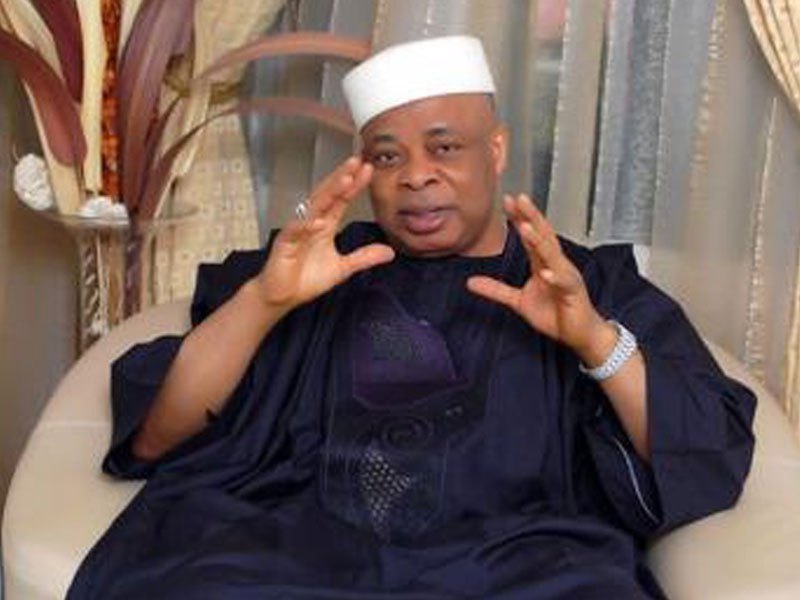Editorial
Another Electoral Reforms Conference?
Published
9 years agoon
By
Olu Emmanuel
PRESIDENT Muhammadu Buhari’s administration has continued to exhibit an alarming insensitivity to the concerns of majority of Nigerians who are groaning under the weight of recession. He remains aloof, alien to, remote and totally disconnected from, the aspirations of the public. Pray, what is the immediate relevance of an electoral reforms committee to the multilayered economic assaults buffeting this country? Early last week, the media was awash with the news that yet another Electoral Committee had been constituted in the following terms:
“The Attorney-General and Minister of Justice, Abubakar Malami, SAN, will on Tuesday, October 4, 2016, inaugurate a Committee on constitutional and electoral reforms at the Hon. Attorney-General’s (HAGF’s) Conference Room, Abuja, by 11. 00 am. The Committee is expected to review electoral environment, laws and experiences from recent elections conducted in Nigeria and make recommendations to strengthen and achieve the conduct of free and fair elections in Nigeria.”
The statement said the 24-member-strong Committee would be chaired by the former Senate President, Senator Ken Nnamani, while Dr. Mamman Lawal of Bayero University, Kano, is the Secretary. Other members of the committee would include Dr. Muiz Banire, SAN, Dr. Clement Nwankwo, Chief A.C Ude and Mr. Tahir, Director, Legal Drafting, Federal Ministry of Justice, amongst others.
If the administration is working hard, so we are told, to resist the predatory penchant of IMF and other Western sharks over our worsening economic conditions, must we engage in another clearly expensive, wasteful and totally insensitive political jamboree like an electoral reforms committee? Pray, why should we clog this nation’s aspirational arteries with never-ending, even if vulgar, indulgence?
We have to remind the President that there have, in this country, been several electoral reforms committees over the years. Also, there have been several Electoral Acts and amended Electoral Acts enacted to govern election processes in Nigeria. The extant law on elections in Nigeria is the Electoral Act, 2010, amended by the Electoral Act, 2011.
It would be recalled that, in the most recent past, a previous Federal Government constituted the Justice Mohammed Uwais Conference to look into the pitfalls of the electoral processes in Nigeria. That Conference came up with far-reaching recommendations, which are currently lying in the cooler. This explains why not a few Nigerians are at a loss to understand why the Federal Government has constituted yet another election reforms committee. The mandate of this new reform committee is anything but new. Indeed, the Justice Mohammed Uwais Committee exceeded expectations when it produced a comprehensive Report, conveying beautiful recommendations, like the formation of a truly Independent National Electoral Commission (INEC), the appointment of a chairman for a truly independent electoral umpire and the independence of INEC from the ruling party.
As at today, the recommendations of the Uwais report have been honoured more in the breach than in observance. We recommend that the present administration should have recourse to the Uwais Report, which was substantially comprehensive. The Uwais Conference, which produced the Report, was headed by an apolitical man, Justice Mohammed Uwais, a retired Chief Justice of Nigeria. Why, we dare ask, is there any need for a new electoral committee, which must be headed by Senator Ken Nnamani, a former President of the Senate, a politician and a card-carrying member of the ruling political party?
We dare say also, that this political Committee will constitute an unnecessary waste of scarce resources at a time when the country is in recession, and over three-quarters of the States of the Federation are unable to pay the salaries of their workers and the Federal Government is junketing round the world, cap in hand, for funds to execute the capital projects in the 2016 budget. Or is this move a design to create jobs for the boys? Or is there a hidden agenda for the 2019 elections?
For example, certain basic things that ought to be done about elections in Nigeria remain unattended to: Today, even if the Constitution requires, in item 14 (2) of Part 1 to the Third Schedule of the 1999 Constitution (as amended), that “There shall be for each State of the Federation and the Federal Capital Territory, Abuja, a Resident Electoral Commissioner (REC) to be appointed by the President”, there are, today, no more than 12 (instead of 36) of such RECs as recommended by law! As at now, the Chairman of INEC remains an appointee of the President, contrary to the recommendations of Uwais Report. Therefore, the Independent National Electoral Commission (INEC) is anything but independent.
President Muhammadu Buhari should not remain defiant of the wishes of the people; he must not epitomize the narrowness of mind of most of our leaders who were unfeeling, self-righteous and unyielding ingrates, and incapable of backing down from wrong policy formulations. We are strongly persuaded that the recommendations in the Uwais Report must be revisited, acted and relied on, as they have the capability to “strengthen and achieve the conduct of free and fair elections in Nigeria”, and that we should not descend into another monumental waste of scarce resources.
Trending

 Latest4 days ago
Latest4 days agoYoruba film industry mourns as popular actress aunty Ajara passes away

 Trends5 days ago
Trends5 days agoTonto Dikeh reunites son with Churchill after decade-long split

 Business7 days ago
Business7 days agoRite Foods positions industry as catalyst for Nigeria’s clean energy transition

 Health6 days ago
Health6 days agoControversial preprint revives vaccine–autism debate, draws sharp pushback from medical experts

 Football6 days ago
Football6 days agoEPL: Confirmed transfer deadline day deals in January 2026

 Football7 days ago
Football7 days agoArsenal’s Osman Kamara completes permanent move to Blackburn Rovers

 Featured7 days ago
Featured7 days agoMidnight raids, teargas: Lagos deploys military-era tactics in mass evictions

 Business7 days ago
Business7 days agoCBN releases fintech report, maps growth, opportunities, risks in Nigeria’s digital finance sector

